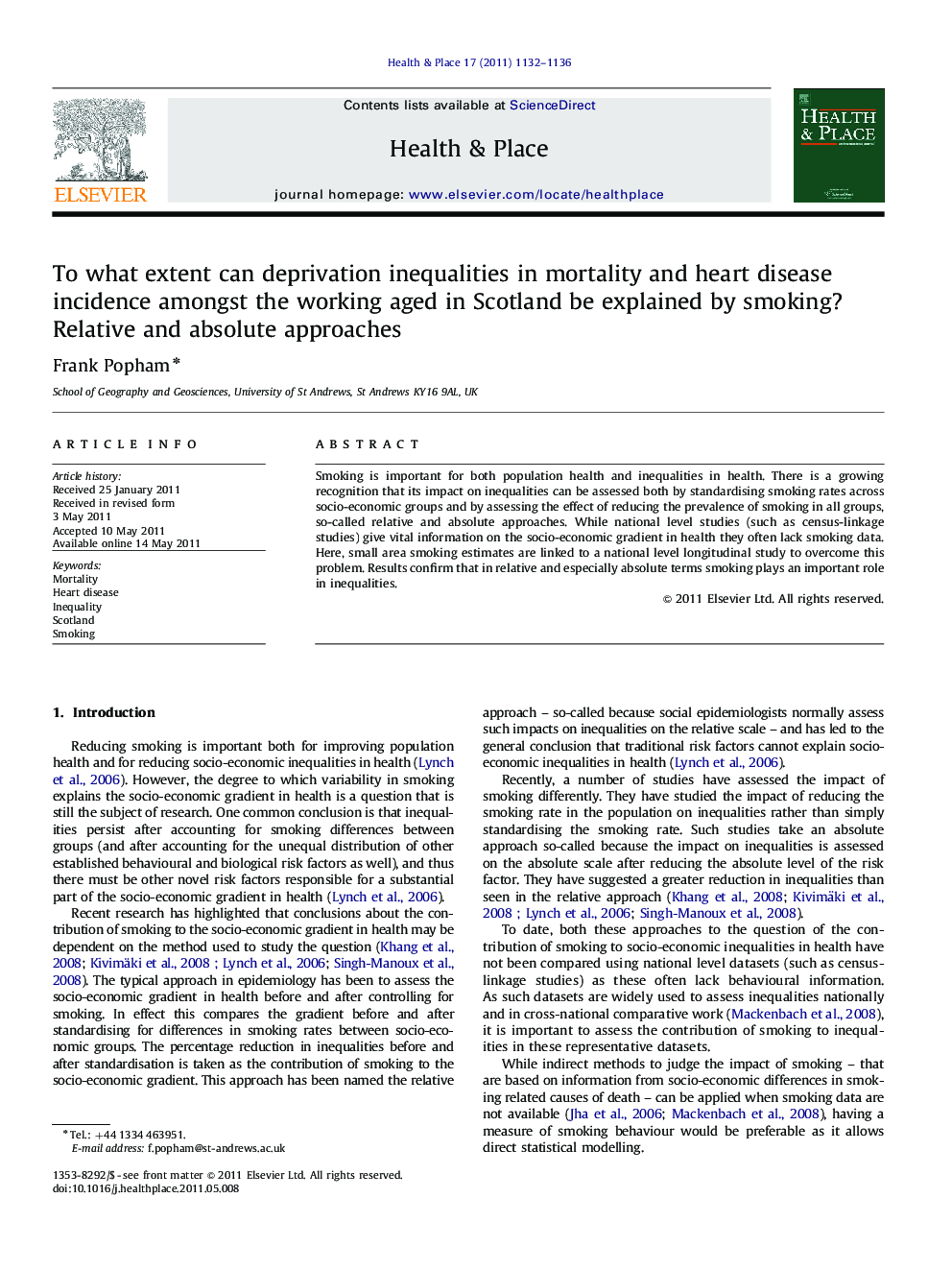| Article ID | Journal | Published Year | Pages | File Type |
|---|---|---|---|---|
| 10503010 | Health & Place | 2011 | 5 Pages |
Abstract
Smoking is important for both population health and inequalities in health. There is a growing recognition that its impact on inequalities can be assessed both by standardising smoking rates across socio-economic groups and by assessing the effect of reducing the prevalence of smoking in all groups, so-called relative and absolute approaches. While national level studies (such as census-linkage studies) give vital information on the socio-economic gradient in health they often lack smoking data. Here, small area smoking estimates are linked to a national level longitudinal study to overcome this problem. Results confirm that in relative and especially absolute terms smoking plays an important role in inequalities.
Related Topics
Health Sciences
Medicine and Dentistry
Public Health and Health Policy
Authors
Frank Popham,
